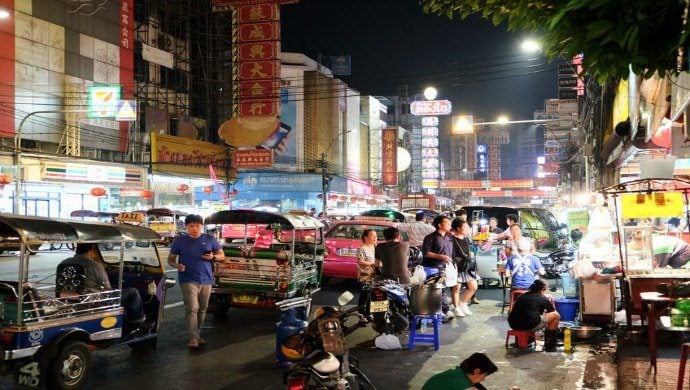Last year, the government banned motorbike-based ride-hailing services such as GrabBike and UberMOTO

In 2016, the Thailand government announced a ban for motorbike-based ride-hailing services, forcing companies such as Uber and Grab to halt their motorbike services. Startups are only allowed to provide food delivery and courier services through this mode of transportation, and none has changed since the ban was announced in May.
Last week, the government has begun to step up the effort to curb ride-hailing service in the country by conducting raids. Officials booked car services through Uber and Grab apps, and once the driver arrived, arrested and fined them. The movement began in Chiang Mai and was later conducted in other cities such as Bangkok, with at least 23 drivers have been arrested as of Thursday.
Department of Land Transport (DLT) chief Sanit Phromwong told Bangkok Post on Thursday that the officials are doing this for fear of passengers safety.
“All of these measures are aimed at protecting passengers from unwanted incidents and offences … But none of those drivers who are operating the illegal taxi services was verified by such procedures,” he said.
He also cited violation of Vehicles Act, that forbids the use of personal vehicles as public transportation, as reasons behind the arrest.
However, Phromwong also stressed that platforms that are using conventional taxi services such as GrabTaxi or All Thai Taxi, are legal and “supported by the department.”
Also Read: Didi rival UCAR announces US$1B funding, sparks speculation of another ride-hailing war
Meanwhile, Uber responded to the issue by calling for a legal amendment.
“Since we arrived in Thailand in 2014, Uber has engaged with the department to clarify that we are not a taxi service. There are currently no existing regulations that recognise ride-sharing services provided by smartphone applications. The technology that enables ridesharing is different from existing public transportation, which is why we cannot register as public transportation,” the statement reads.
“We are committed to continuing dialogue with the department authorities to explain what Uber is, but we believe it is time to amend the legal framework to accommodate this much needed new technology and realise the full benefits it is bringing to riders, drivers and cities.”
Uber has also released a petition to support the law amendment, as the company has done in the other markets it operates in, from London to Mumbai.
Recently, Uber has admitted to employ a technology called the “Greyball” which it uses to prevent authorities from using their service, and eventually using it as a mean to crackdown its business.
On Wednesday, the company stated that it will stop using the technology after it conducted reviews on “the different ways the technology has been used these days.
Crackdown on ride-hailing services continue to happen in many parts of Asia. In Taiwan, where Uber operates in four cities, the company has recently been forced to move out of the market.
Friction between ride-hailing services and traditional public transportation also continued to happen in Indonesia, where mini-bus drivers in Bandung staged strikesto protest against motorbike-based ride-hailing services such as Go-Jek’s Go-Ride and Grab’s GrabBike on Thursday.
—
Image Credit: ponsulak / 123RF Stock Photo
The post Thailand steps up effort to curb ride-hailing services, citing fear for passenger safety appeared first on e27.